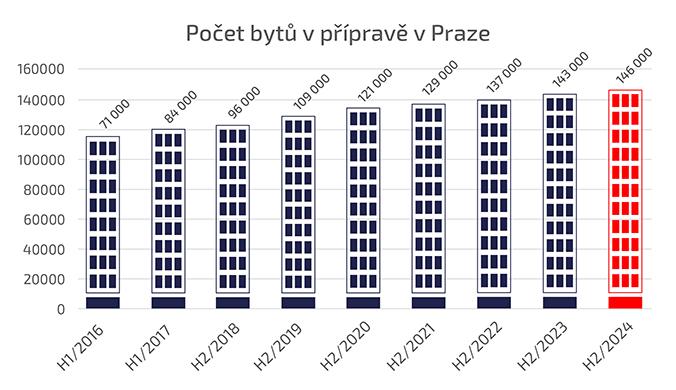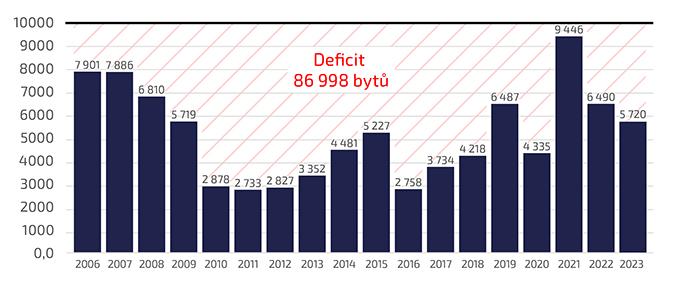Analysis: Surging demand drives Prague housing market as permitting bottlenecks persist
Demand for new apartments in Prague has skyrocketed by 98% year-on-year, according to a new analysis by Central Group, the Czech Republic’s largest residential developer. Despite nearly 150,000 flats in the development pipeline, a dysfunctional permitting system has stifled supply, resulting in 7% year-on-year increases in both prices and rents. The housing market remains the least affordable in Central Europe, with little relief in sight as regulatory hurdles persist.
Prague’s housing market has experienced rapid growth in demand, with 5,350 flats sold in the first three quarters of 2024—double the number sold during the same period last year. By the end of the year, sales are expected to surpass 7,000 units, approaching the record levels of 2021. However, this surge in demand far outpaces the available supply. The lack of sufficient new housing has driven flat prices up by 7%, exceeding projections by the Czech National Bank. Rents have also increased at the same rate, reflecting the growing strain on the housing market. Dušan Kunovský, founder and CEO of Central Group, noted: “While several new projects have been launched, they only represent deferred supply from prior years, which will soon be exhausted. The core issue remains the ineffective permitting system, creating a serious risk of even faster price increases.”
Central Group’s analysis reveals that 146,000 new flats are currently being prepared for development in Prague. Yet the city’s permitting system is unable to meet the demand for approvals, with only around 5,000 units permitted annually—half of the estimated 10,000 units needed to stabilize the market. As a result, Prague’s housing deficit grows by approximately 5,000 units each year, with the shortfall now nearing 100,000 flats. The Czech Statistical Office (CSO) reports that only 5,270 flats were permitted between January and September 2024, making it unlikely that this year’s total will reach even half of the required threshold.
The housing crisis is further exacerbated by delays in implementing a new building law and slow progress in digitizing permitting processes. These systemic issues continue to block significant progress, with no immediate solutions on the horizon.
Without urgent reforms to streamline permitting and unlock the city’s housing pipeline, Prague’s housing shortage is likely to worsen. Rising demand, coupled with constrained supply, threatens to push prices and rents even higher, leaving the market increasingly inaccessible to many residents. The analysis underscores the pressing need for policy changes to address regulatory inefficiencies and alleviate the growing housing deficit. Until then, Prague’s housing market will remain under pressure, with affordability slipping further out of reach.










